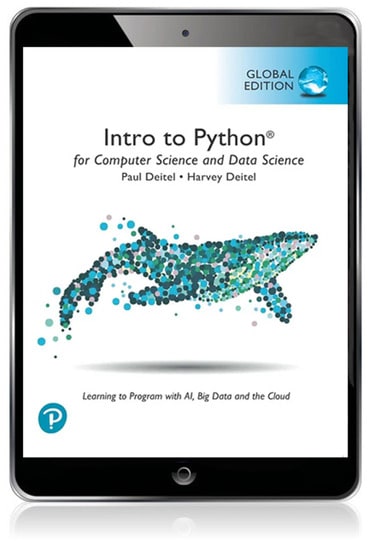
Intro to Python for Computer Science and Data Science: Learning to Program with AI, Big Data and The Cloud, Global Edition, 1st edition
Published by Pearson (September 1, 2021) © 2022
- Paul Deitel Deitel & Associates, Inc.
Title overview
For introductory-level Python programming and/or data-science courses.
A ground-breaking, flexible approach to computer science and data science
The Deitels' Introduction to Python for Computer Science and Data Science: Learning to Program with AI, Big Data and the Cloud offers a unique approach to teaching introductory Python programming, appropriate for both computer-science and data-science audiences. Providing the most current coverage of topics and applications, the book is paired with extensive traditional supplements as well as Jupyter Notebooks supplements. Real-world datasets and artificial-intelligence technologies allow students to work on projects making a difference in business, industry, government and academia. Hundreds of examples, exercises, projects (EEPs) and implementation case studies give students an engaging, challenging and entertaining introduction to Python programming and hands-on data science.
The book's modular architecture enables instructors to conveniently adapt the text to a wide range of computer-science and data-science courses offered to audiences drawn from many majors. Computer-science instructors can integrate as much or as little data-science and artificial-intelligence topics as they'd like, and data-science instructors can integrate as much or as little Python as they'd like. The book aligns with the latest ACM/IEEE CS-and-related computing curriculum initiatives and with the Data Science Undergraduate Curriculum Proposal sponsored by the National Science Foundation.
